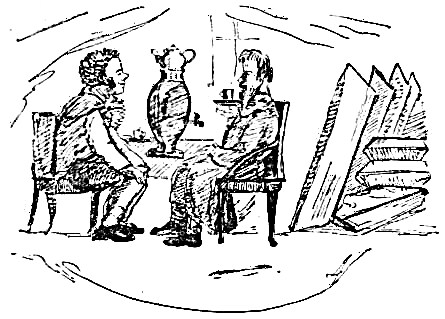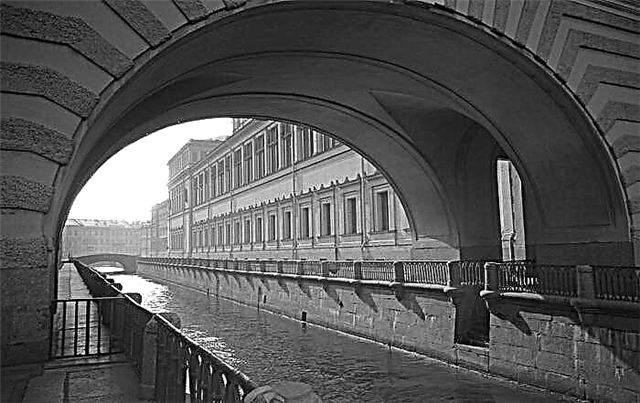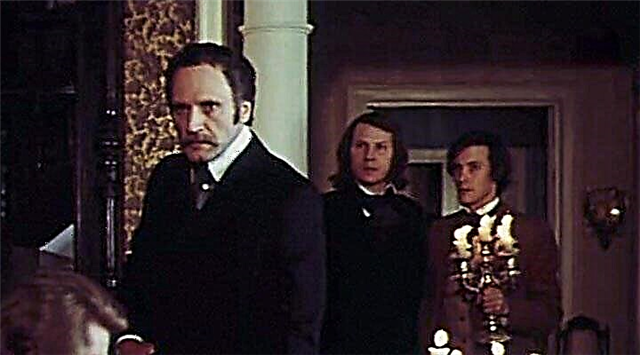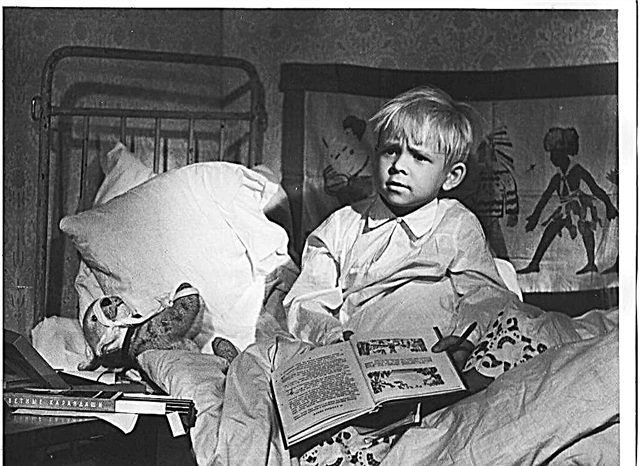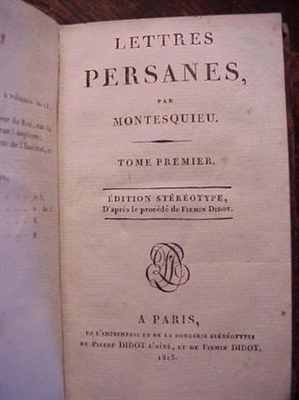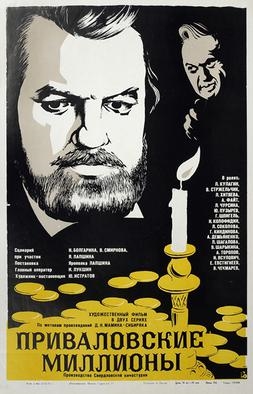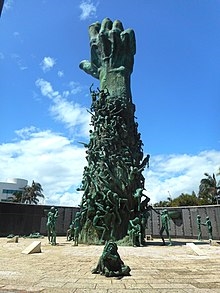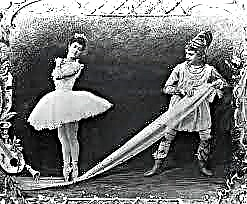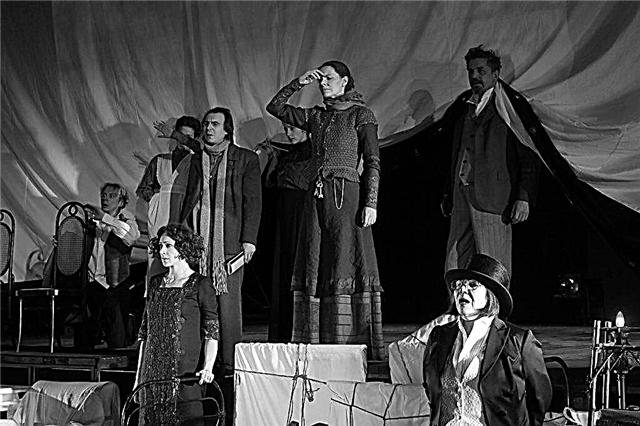The plot of the novel is based on the story of the really conspiracy of the favorite of King Louis XIII, the Marquis of Saint-Mar, against the all-powerful Cardinal Richelieu.
1639 Young Henry d’Effia, Marquis de Saint-Mar, goes to serve the king - goes to the siege of Perpignan captured by the Spanish troops. Under cover of night, he says goodbye to Maria Gonzago, the Duchess of Mantua, who lives in the castle under the care of his mother. Young people love each other, but Mary “was born the daughter of a monarch,” and in order to receive her hand, Saint-Mar must be exalted. With this thought, the young man sets off on his journey.
On the way, he calls in to Luden to see his mentor, Abbot Kiye. There he witnesses the execution of priest Urben Grande, accused of witchcraft. However, the true reason for condemning the unfortunate is the pamphlet he wrote against Richelieu. Judge Lobardemon, wanting to prove to everyone that the condemned is possessed by the devil, brings a red-hot iron crucifix to Grandier’s lips on the way to the fire, and he involuntarily pushes him away. Outraged by such baseness, Saint-Mar grabs a crucifix with a hollow cloak and stabs the judge in the forehead.
Saint-Mar realizes that in the person of Judge Lobardemon he acquired a mortal enemy. At night, the young man, "distinguished by painful sensitivity and constant excitement of the heart", is haunted by disturbing dreams: Urben Grande under torture, a crying mother, Maria Gonzago, leading him behind him to the throne, where he can not rise, a gentle hand that turns out to be the executioner's hand .. .
Saint-Mar comes under the walls of Perpignan and pitches his tent where the young nobles have already settled down, who should be introduced to the king. Going around the position, he meets with parliamentary adviser de Tu, his childhood friend. "They hugged, and their eyes were moistened with sweet tears." Saint-Mar and de Tu participated in the assault on the Spanish bastion, showing miracles of courage.
Saint-Maru is honored to appear before the king. Seeing the "young pale face, large black eyes and long chestnut curls", the king is struck by his noble appearance. The cardinal tells Louis that the young man is the son of the valiant Marshal d’Effia. Delighted with the courage of Saint-Mar, the king appoints him captain of his guard and expresses a desire to get to know him better. De Tu also receives royal accolades.
Driving through the camp, Saint-Mar saves two Spanish prisoners from reprisal. Sending them to his tent, he himself, overcoming the pain in his wounded leg, goes to the king. All of Henri’s thoughts are focused on how to “please” His Majesty, for he needs to “either exalt or die.” De Tu reproaches him for vanity. Saint-Mar assures a friend that his "intentions are as pure as heaven."
The king joyfully meets the young man: his appearance relieves Louis from a painful conversation with the cardinal. Looking at Saint-Mara, Richelieu feels that this young man can cause him a lot of trouble. Seeing that Saint-Mar was wounded, the king orders to call his doctor and declares that if the wound is not dangerous, the young man will accompany him to Paris.
Richelieu is confident that Saint-Mar will become a favorite, and sends his slander, father Joseph, to follow him. “Let him either serve me or fall,” the cardinal declares.
Sitting at the head of Saint-Mare, de Tu discusses how much benefit the fatherland can bring an honest courtier who fearlessly tells the monarch the words of truth. Wanting to open the veil of the future, young people, following an old belief, unfurl a prayer book with a sword so that they can read their fate on the opened pages.Smiling tightly, Saint-Mar reads a story about the execution of two holy friends and martyrs, Hervasius and Protasius. At this moment, father Joseph enters the tent. According to the same belief, the first one who enters the room after reading will have a great influence on the fate of the readers.
Father Joseph is present at the conversation of Saint-Mare with the prisoners he saved. One of them turns out to be the son of Judge Lobardemont; due to the cruelty of his father, he was forced to leave his home. Saint-Mar gives young Lobardemon the opportunity to escape, but his secret becomes known to his father Joseph.
It takes two years. Saint-Mar - chief-stalmeister, recognized favorite of Louis XIII. The cardinal is seriously ill, but continues to rule the country. Arriving at the court, Mary Mantua is under the auspices of Queen Anne of Austria, who wants to marry her to the Polish king. But Mary still loves Saint-Mara, and Abbot Kiye secretly engages them. Now the young man must become a constable to openly ask for her hands.
But, despite the king’s friendship, Saint-Mar does not succeed in exalting himself, and he blames Richelieu for this. Many nobles hate the omnipotent minister; out of this discontent, a conspiracy is born to eliminate the cardinal from power. King Gaston of Orleans and Anna of Austria find themselves involved in it. The head of the conspirators becomes the universal favorite of Saint-Mar.
For the sake of overthrowing Richelieu, the rebellious nobles agree to conspire with Spain and send enemy troops into the country. After reviewing the plans of the conspirators, the queen refuses to support them, but promises to keep everything she knows secret.
Upon accidentally learning about the plans of Saint-Mar, de Tu reproaches his friend for betraying the interests of his homeland. In response, Saint-Mar tells him about his love for Mary - for it was for her sake that he became a courtier, for her sake he wants to be the “good genius” of Louis and destroy the tyrant cardinal. Otherwise, he can only die. De Tu in despair: he saw Mary at court, and she seemed to him a frivolous coquette. However, for the sake of a friend, he is ready for anything, even to participate in the conspiracy.
Noble conspirators gather in the courtyard of the courtesan Marion Delorm and take Saint-Mar the oath of allegiance. “King and peace” is their cry. Having signed a contract with the Spaniards, Saint-Mar with a young Lobardemont sends him to Spain. Having learned how far the conspirators have gone, Gaston of Orleans also refuses to participate in such a dubious enterprise.
Under cover of darkness, Saint-Mar and Mary meet in the church of St. Eustathius. Saint-Mar tells her lover about the plot and asks her to terminate their engagement. The girl is shocked: she is the bride of a rebel! But she does not intend to betray her oath and leave Saint-Mar. Suddenly the voice of Abbe Kiye is heard: he calls for help. It turns out that they tied him up and shut their mouths, and in his place, in the confessional, next to which the lovers had a conversation, slipped the loyal servant of the cardinal, father Joseph. The abbot manages to free himself, but it’s too late: Father Joseph heard everything.
Judge Lobardemon receives an order to get a contract. In the Pyrenees, he catches up with the messenger of Saint-Mar and recognizes his son in him. However, the judge is full of hatred, not forgiveness. Having taken possession of the paper he needs, he treacherously kills his own son.
Saint-Mar and the faithful de Tu come to the camp of the conspirators near Perpignan. Here Saint-Mara finds the Queen’s letter asking him to free the Duchess of Mantua from oaths so that she could marry the Polish king. In desperation, Saint-Mar replies that only death can separate him from Mary, and sends the messenger back with a letter. Feeling that the conspiracy failed, Saint-Mar dissolves the conspirators.
Having received evidence of the betrayal of Saint-Mar, Richelieu demands from the king an order to arrest his favorite, threatening, in case of refusal, to resign. Realizing that he himself is not able to rule the country, Louis obeys. Suddenly appears Saint-Mar.“I surrender because I want to die,” he declares to the amazed king, “but I am not defeated.” The selfless de Tu too does the same.
Saint-Mara and de Tu enclosed in a fortress. During the investigation, Father Joseph comes to their cell and invites Saint-Mar to poison Richelieu. After the death of the cardinal, the king will undoubtedly return his location to the young man, and then he will become the patron of Joseph's father and help him become a cardinal. Saint-Mar indignantly rejects the offer of the hypocritical monk.
Judges of Saint-Mare and de Tu are appointed Lobardemon and his henchmen at the Luden court; they sentenced friends to death. But the judges themselves do not live up to the execution of their sentence: Richelieu's henchmen push them into the water, and the huge blades of the mill wheels grind them to pieces.
To the prisoners as the confessor they admit the abbot Kiye. From him Saint-Mar learns that the queen bitterly reproaches herself for some letter. But most importantly, there is no news from his beloved Mary ... The abbot says that the former conspirators want to free them near the scaffold, Saint-Mar needs only to give a sign - to put on a hat. However, young people, "prepared for death by a long thought", reject the help of friends, and, reaching the scaffold, Saint-Mar throws his hat to the ground far from him. Like the martyrs Hervasius and Protasius, Saint-Mar and de Tu perish under the executioner's ax.
“The last breath” of young people “was also the last breath of the monarchy,” concludes the author through the lips of the poet Cornel.

